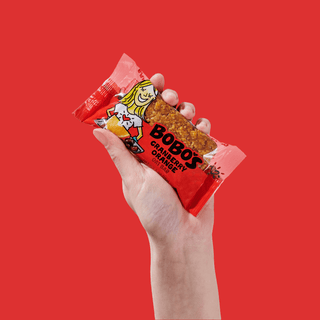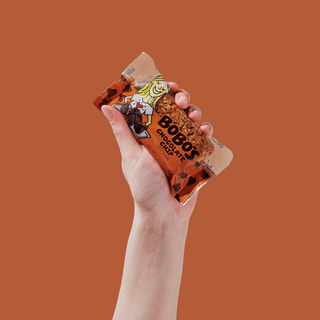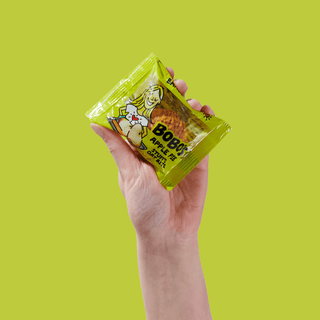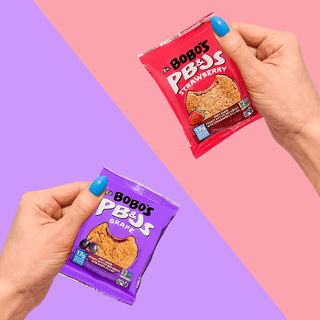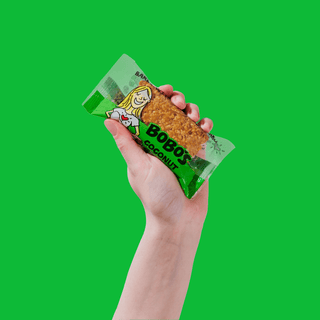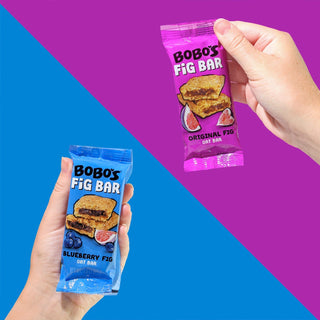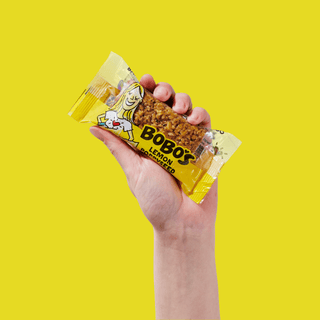Meal prepping has become wildly popular over the years, for many good reasons. You might be looking to spend less time and energy in the kitchen during the busy workweek. Maybe you're trying budget meal planning to save money and gain more financial freedom. Perhaps your goal is to eat more balanced meals and avoid eating out as much. Or, if you're wondering, meal planning for gluten-free and dairy-free diets is more common than you might think. These are all real reasons that people from all walks of life, living all over the world, learn how to meal prep and do it every day.
What is meal prep?
Meal prepping is preparing meals, or parts of meals, in advance and storing them in the fridge or freezer. This means the food is ready to be cooked and eaten whenever you are. The meal prep process is different from meal planning, as you're doing more than deciding on meals and shopping for their ingredients. You're actually taking this a step further by getting ingredients ready and prepped to cook when you're ready to eat.
What are the benefits of meal prepping?
When you take time and effort to meal prep ahead of time, the process of getting those meals ready to eat is much simpler, easier, and more efficient. This is especially beneficial when you've had a long day, are super busy, or are otherwise short on time. So, you'll not only save time and stress, but you'll probably also save money and eat better because you won't waste ingredients, buy meals, or add unhealthy items just because they're sitting around.
The best foods for meal prepping
Not all foods are made equal, and some are much better suited to meal prepping than others. Here are some items to help you get started. Together, they'll help inspire you to create delicious, balanced, healthy meals and snacks.
Plant-based proteins
- Eggs, particularly hard-boiled, are an easy, filling, and nutritious meat-free protein.
- Tofu or beans (canned or dried) like lentils and chickpeas are filling, tasty, and a great way to get your protein if you want to skip the meat.
- Get your dairy and protein in one with unsweetened skyr or Greek yogurt, or low-sodium cottage cheese.
- For a quick, healthy snack, opt for crunchy nuts like almonds, peanuts, or walnuts, and seeds like pumpkin, flax, or chia.
Fruits and vegetables
- Look for what's in season in your area. Apples, oranges, bananas, berries, and plenty of other in-season fruits are delicious, healthy, and perfect for a quick energy boost.
- Frozen vegetables are ideal since they're pre-washed, chopped, and ready to be cooked. Things like corn, peas, and beans are always helpful to have onhand.
- Fresh, crunchy vegetables like carrots, celery, cauliflower, and bell peppers are great for snacks with dips like hummus and salsa.
- Pre-washed greens like spinach and kale are perfect for salads, have plenty of nutrients, and last longer than most lettuce. Just be sure to dress them only upon serving.
- Root vegetables like potatoes are filling and last longer than other cooked veggies.
Whole grains
- Quinoa, brown rice, farro, oats, and barley are versatile, healthy grains to add to any meal, any time of day. They'll last a while in the pantry, too.
Don't forget to keep some healthy oils, sauces, and spices on hand so you're ready to prep with a variety of flavors at a moment's notice.
How to start meal prepping
Ready to learn how to meal prep for the week? Follow these key steps to get started with meal prepping.
1. Make a meal plan
Before jumping into buying and prepping your food, you need to write down or document exactly what you plan to do – aka your meal plan. Start by making a "master" list of the recipes you know you like and those you want to try out. This will make it easy to make go-to favorites along with new meals when you're feeling more adventurous.
Then, from that master list, start small with 1-2 recipes. You can work your way up to five or so, depending on your schedule each week, once you get the hang of meal prep.
These recipes can work double duty for both lunches and dinners for the week. You can also start small and do simple breakfasts and snack items.
2. Make a shopping list and hit the grocery store
Now that you have your meals planned out for the week, it's important to make a list with all the necessary ingredients for them. Doing this will not only save you time – as you won't be wondering what to get while in the store and potentially visit aisles multiple times – but it will also save you money. It's all too easy to buy extra items at the store when you're not working from a list. You can even order your groceries online from many stores to save time and get exactly – and only – what you need.
3. Get cooking
To prep or cook your food for the week, you have some options. You can choose one or more strategies or portions of them that appeal most. Then, as you figure out what works best for you and what doesn't, be sure to change things up.
Batch prep
You can prep everything over the weekend (or when you have more free time) so that weeknight or busy-time meals are that much faster. This involves assembling but not cooking meals, including portioning out ingredients (this makes it super convenient to grab and go), and then refrigerating or freezing everything until you're ready to eat. At that point, you cook it.
Batch prepping can mean cooking a single ingredient and centering a few meals around it, or it can be "buffet style". This is where you prep all of your veggies, carbs, and proteins ahead of time and mix them up to make different flavor combinations. Things like soups, salads, pizzas, tacos, and other meals with several variations work well here.
Pro tip: it's easy to feel overwhelmed, but you don't have to. Batch prep can be as involved upfront or later on as you need it to be. Think in small steps, especially in the beginning. You could, for example, cook a batch of rice, chop up veggies, or prep your favorite protein in the slow cooker or stovetop. Steps like these done in advance save a ton of time later.
Batch or pre-cook
A second option is to batch-cook all of your meals in advance so that when you're ready to eat, all you need to do is reheat the food. It's easy to center many meals around a large batch of protein. This approach is great for lighter meals like breakfast and lunch, or for days when you simply don't have time to prep.
Repurpose leftovers
If, after you've had a meal or two, you've got some food leftover, get creative by mixing things up. The sky's the limit here. For instance, you could add toppings to things like frozen fries, eggs, tortillas, stir fries, or salads.
4. Don’t forget about snacks!
It's important to remember that you'll get hungry throughout the day, not just before mealtimes. Healthy snacking is a key part of maintaining your energy and keeping that hunger at bay. So, be sure to prepare plenty of things in advance. Here are just a few easy ideas:
- Pre-cut veggies with dip
- Rice crackers and hummus
- Healthy snacks with fresh seasonal produce
- Delicious oat snacks, including Bobo’s best sellers
5. Use the right containers
Now that you've got your meal prep process down pat, you'll need the right containers to hold everything until it's time to eat! The nice thing is you really don't need anything fancy. But, it's important to use BPA-free containers for safety, like glass.
A quality container set will keep everything fresh and evenly reheated. You'll want durable, dishwasher-safe, microwavable, and freezer-friendly products of different shapes and sizes to not only fit your items but optimize space, too.
6. Enjoy healthy meals all week long!
When you take time to meal prep upfront, you'll soon enjoy a simpler, easier, and more efficient life, especially at the end of a long day or week. Meal prepping cuts down on overall stress, too, and saves some of that hard-earned money, so you can spend it elsewhere or save it for a rainy day.
Meal prep FAQs
How long can you keep meal prep food in the fridge?
Most meal prep food will last anywhere from 3-5 days up to a few months in the fridge, depending on the ingredients you use. Generally speaking:
- Unless added separately, lettuce and spinach wilts or browns after 3-4 days
- Homemade snacks last for about 1-2 months
- Dressings and sauces last for about 2 weeks to 2 months
- Items you freeze (like stew, pasta, soup, or curry) last for about 3 months
What proteins are good for meal prep?
Proteins make excellent meal prep choices because they keep their shape once stored and are part of a healthy, balanced diet. Here are some great protein options for meal prep:
- Eggs (hard-boiled or in a frittata or casserole)
- Tofu
- Lentils
- Quinoa
- Beans and legumes
- Greek yogurt or skyr
- Cottage cheese
Is meal prepping really cheaper?
Meal prepping can save you money on the meals and snacks you would have bought while out at a restaurant or getting take-out food. Depending on your habits, this can add up significantly. Plus, the high upfront food costs work out to less money spent over time with fewer grocery store trips.
What should you not do when meal prepping?
When meal prepping, don't make these mistakes:
Not planning ahead. Don't wait to decide what to cook until you're at the store – instead, make a list beforehand to avoid overbuying or giving in to unhealthy temptations.
Cooking too much food. Wasting food is not only bad for your wallet, but it's horrible for the planet, too. Follow recipes and use measuring cups and spoons for precise proportions if you're ever unsure. That said, you can always plan for leftovers to save time on prepping other meals.
Getting overwhelmed. Especially when you're just beginning, it's important to think small. Start out with a simple, single recipe for the week and work your way up to additional meals and snacks. You can also batch prep and cook later to save time upfront. It can help to physically schedule meal prep in your calendar with time blocked off, so you won't be interrupted (or skip doing it altogether).
Skipping snacks. As we said before, everyone needs extra fuel throughout the day, so don't forget to include snacks in your meal planning. They're a huge help in maintaining a healthy diet, particularly if you're active or have specific health goals.
Not listening to yourself. Everyone is different, and some of us can truly enjoy eating the same meal for 3+ days in a row. But, many cannot. If that includes you, don't sweat it and don't fool yourself by planning the same meals day in and out, thinking you'll save time or money. This won't work if you don't enjoy the food, and you'll just end up burning out and wasting even more – exactly the opposite of the goal here.
Can meal prep cause food poisoning?
There are important guidelines to follow so that your prepped meals don't cause food poisoning or otherwise make you sick. Think of your meal-prepped food as leftovers. This means that after a few days, it could be spoiled depending on the ingredients and fridge temperature. For instance, cooked beans and legumes shouldn't be refrigerated for more than 4-5 days. So, do yourself a favor and don't prep for more than 2-3 days at a time, or freeze meals you plan on eating after that period.
To avoid food poisoning and spreading germs, follow these rules:
- Thoroughly wash your hands before you cook and eat.
- Keep foods at their optimal temperature until you need to use them (for example, don't leave dairy products on the counter for hours).
- Label your containers with dates so you know exactly when their contents were made and, therefore, how fresh they'll be.

